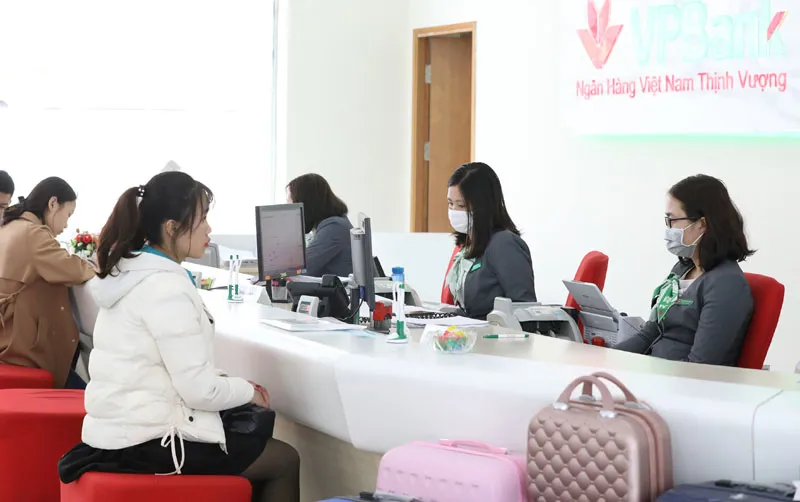Interest rates likely to raise at end of first quarter
A low-interest rate environment in long term could make capital available for other investment channels, so banks are under pressure to readjust their savings mobilization rates to better attract idle capital.
A recovery in production and business activities could lead to higher demand for credit, in turn prompting banks to gradually raise their lending rates from the end of the first quarter.
| Customers at a branch of VPBank in Hanoi. Photo: Cong Hung |
Dinh Trong Thinh, lecturer at the Academic of Finance, told Vietnam News Agency (VNA), that lenders, as a result, could also increase capital mobilization rate to further attract cash flow.
According to Thinh, Vietnam’s effective measures against the Covid-19 pandemic have prevented disruption to economic activities.
Meanwhile, the majority of local enterprises have now also resumed normal operation after having struggled with the Covid-19 impacts for over a year, he noted, not to mention the returning of both foreign and domestic investors, which was proven by a large number of newly established enterprises in the first month of 2021.
“The economy in this case would require huge amount of capital from the banks, subsequently leading to higher interest rate and capital mobilizing rate,” said Thinh.
“A low-interest rate environment in long term could make capital available for other investment channels such as real estate or stock market,” he continued, adding banks should readjust their mobilization rates to better attract idle capital.
Banking expert Nguyen Tri Hieu, however, suggested capital mobilization rate is on the declining trend in the first quarter, and even at a lower rate in the next one.
“Despite the huge demand for capital, banks continue to remain cautious about potential impacts of the pandemic to the overall economy,” he said.
“However, if the pandemic is put under control, interest rate could be readjusted in case demand goes up,” Hieu noted.
A report from the Vietcombank Securities Company (VCBS) suggested central banks around the world would maintain easing monetary policy for a foreseeable future, and Vietnam is no exception.
On the other hand, the State Bank of Vietnam (SBV), the country’s central bank, has been steadfast in maintaining low deposit rates in an attempt to reduce lending rates and support economic recovery.
Banks are now offering interest rate from 4.9-9.2% per annum for loans of 12 months, 3.7-6% for six to nine months, and a maximum of 4% for below six months.
In 2020, the SBV cut its interest rate caps four times, the moves which have encouraged commercial banks to provide cheaper loans.
Accordingly, the refinancing interest rate is lowered from 4.5% per annum to 4%, rediscount rate from 3% to 2.5%, overnight interest rate from 5.5% to 5% and interest rate via OMO from 3% to 2.5%.
The SBV also lowered the interest rate ceiling to 4% annually from 4.25% for deposits with maturities of one month to less than six months.











